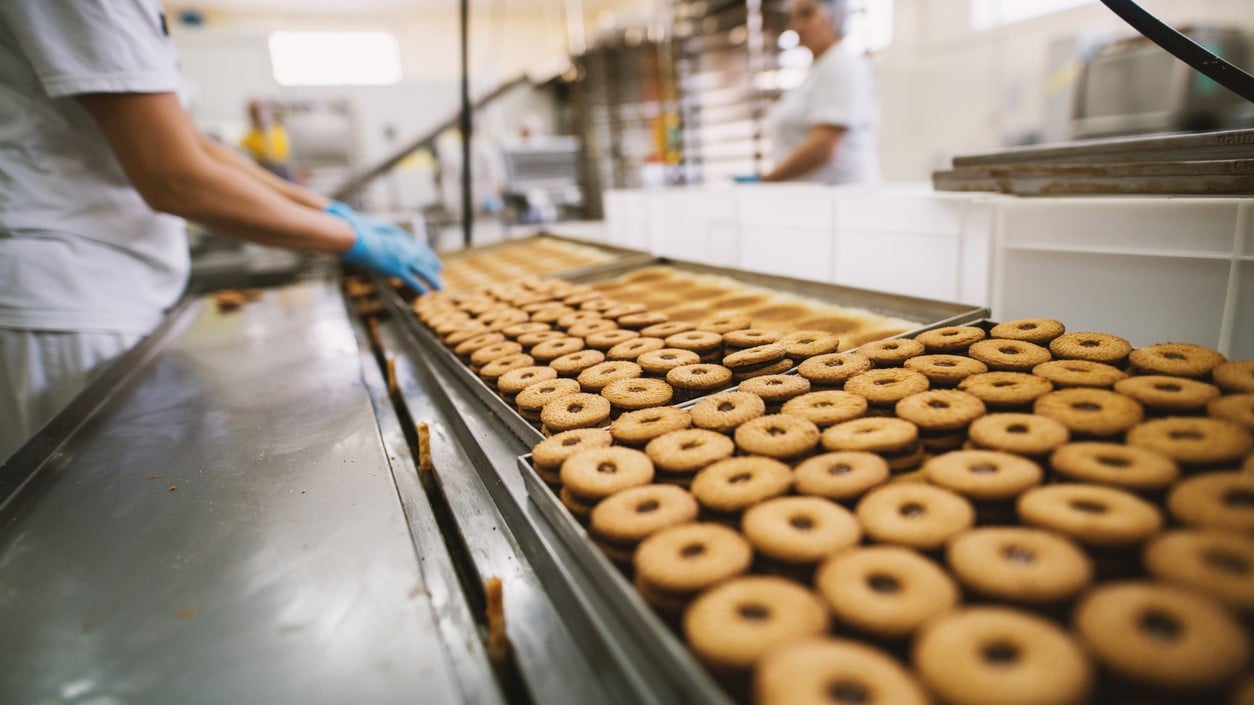A Comprehensive Guide for Hiring Floor Food Safety Managers
On the journey from farm to table, food and beverage products pass through many links in the supply chain, and each one presents unique vulnerabilities for contamination, adulteration, and other dangers. Each organization in the supply chain has unique responsibilities to uphold standards and maintain food safety — but this ultimately depends on the training and diligence of their frontline workers and food safety managers.
Ensuring you have the right food safety manager in place is critical to preventing outbreaks, protecting public health, and maintaining trust in your brand. Here’s how to approach each phase of your own hiring process so you can identify the right qualities and qualifications in your ideal candidate.
1. Establishing Basic Prerequisites
Effectively serving as a food safety manager requires a foundation of standardized training. Here are the most important prerequisite trainings to consider when reviewing candidates:
- Preventive Controls Qualified Individual (PCQI) Training
In the U.S., under the Food Safety Modernization Act (FSMA), certain food facilities are required to have PCQI-trained individuals on staff to develop and implement food safety plans. PCQI training helps food safety managers understand and meet these requirements. - Hazard Analysis and Critical Control Points (HACCP) Training
HACCP is a systematic approach to identifying, evaluating, and controlling food safety hazards. HACCP training is an essential requirement for food safety managers to ensure all risk factors are mitigated in their facility. - Current Good Manufacturing Practice (CGMP) Training
The CGMP regulations are a set of practices for the production of safe food products. CGMP training ensures food safety managers are well-versed in these essential practices to help enforce them with frontline employees and protect your operation from poor outcomes. - Traceability & Recall Crisis Management
This training ensures food safety managers can swiftly and accurately track the origin of ingredients and distribution of products throughout the supply chain in the event of a product safety issue or recall. How quickly a food safety manager responds to a crisis determines how much it will impact public health, as well as your company’s reputation.
2. Screening Resumés
After certifications and training, hiring parties should look at each candidate’s background, including their education and work experience. Here’s what to consider in each category.
Relevant Education
Ideal candidates may have graduate degrees in Food Science, Food Safety, Microbiology, or related disciplines to develop a basic understanding of the food and beverage industry. However, it’s worth noting that food scientists and engineers with degrees at this level may see floor jobs as less prestigious or seek higher paying roles.
Rather than eliminate any candidates without degrees at the Master’s or Ph.D. levels, consider applicants with lower levels of education who still have educational and professional experience in relevant disciplines. These candidates can still excel in a food safety manager role through the proper training, as long as they meet other important criteria when reviewing their resumes.
Past Work Experience
Examine each candidate's work history for relevant food safety roles like HACCP coordinators, PCQI responsibilities, or program quality management, as well as the depth of their experience and how much time they spent handling the same duties and responsibilities expected of them at your company. Key points to consider include:
- How many years of experience the candidate already has in food safety management
- Their specific roles held at previous companies, and their responsibilities related to food safety
- The amount and breadth of relevant experience in food and beverage manufacturing, processing, or production environments.
Auditing and Inspection Experience
Check if the candidate has experience with food safety audits, inspections, and interactions with external auditors or regulatory officials. This type of experience demonstrates their ability to proactively identify, address, and prevent potential food safety risks. Though not necessary, the ideal candidate will have a diverse range of auditing experiences, including internal, third-party, regulatory, supplier, and GMP audits, as well as a proven track record of ensuring compliance with industry standards and regulations.
Awards and Achievements
Note any relevant awards, recognitions, or achievements related to food safety or quality management. The ideal resumé may feature recognition for outstanding compliance in third-party audits, awards for innovative food safety practices, and acknowledgments by food safety organizations for excellence. This type of recognition reflects the candidate’s commitment to maintaining the highest food safety standards and their ability to excel in regulatory compliance and crisis response.
3. Interviewing
After a candidate passes the resumé screening, it’s time to bring them in for an interview. Here, hiring managers should try to get as much insight as possible into the specifics of their previous work experience, how they approach food safety, and more. Consider asking about:
- Examples of how they’ve ensured regulatory compliance in previous positions
- Crises that have come up at past jobs, and how they responded
- Mistakes made in the past (by themselves or others) and what they learned from them
- How they would handle hypothetical crisis scenarios at your company
Candidates who can’t answer basic questions with confidence or expertise might not have the right experience or personality to effectively serve as a food safety manager, despite what their resume shows. Meanwhile, candidates who demonstrate knowledgeability and passion for the industry will shine in an interview setting.
Training the Next Generation of Food Safety Managers
Ensuring food safety requires more than just a set of robust standards and procedures — it requires talented and dedicated people who will put in the work required to protect public health. Hiring the right food safety manager is key to upholding standards, but their education and experience alone aren’t always enough to ensure the best results. All new hires, regardless of their role, should take refresher food safety training courses to maintain their edge and acclimate to your facilities. Sign up for AIB International’s food safety training courses to learn more.


